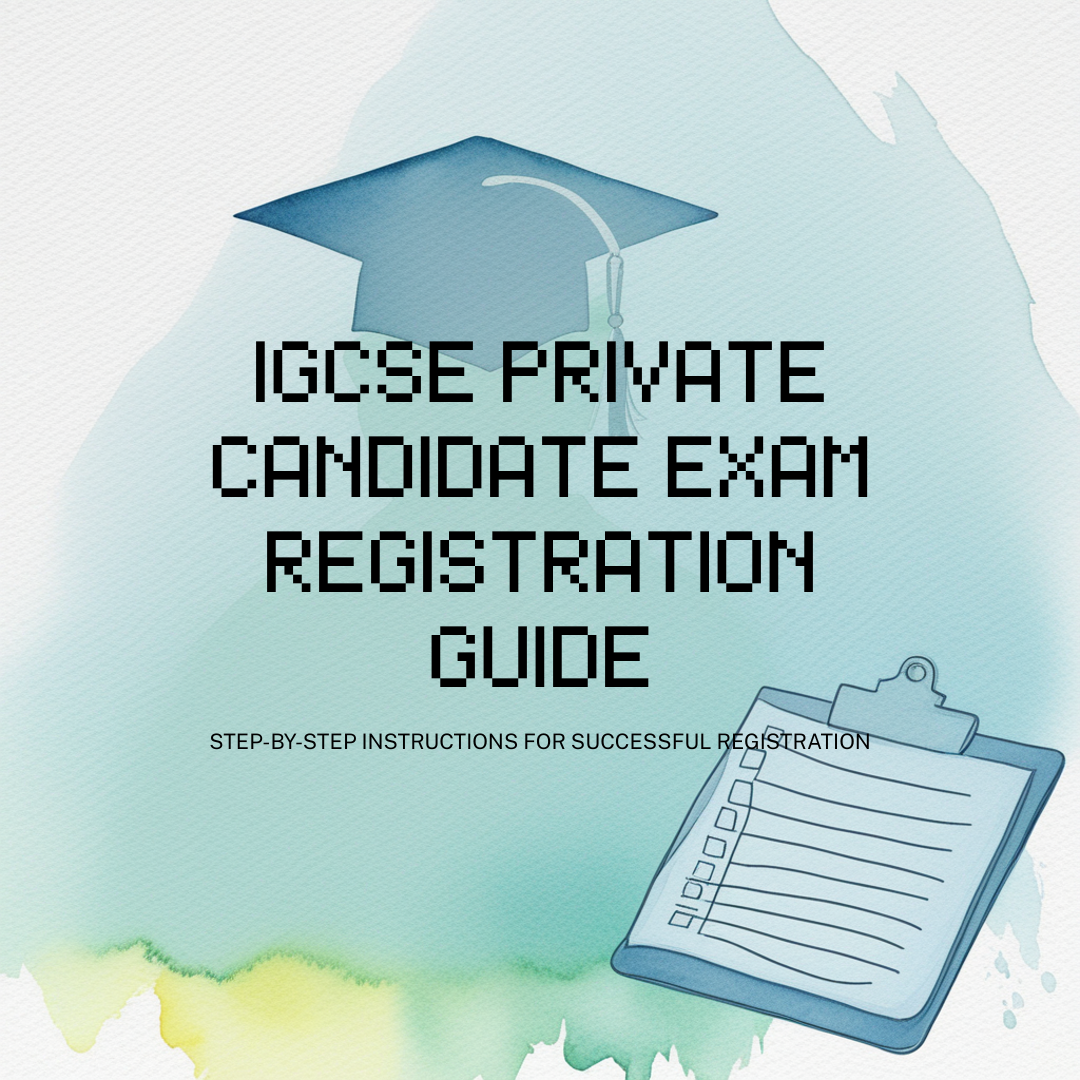Why Proper Registration Is Critical For IGCSE Private Candidates?
Registering properly as an IGCSE private candidate is crucial. There are only two exam sessions per year (May/June and Oct/Nov), and missing the deadline means you may need to wait another year or pay late fees. For instance, the October/November session often closes registration by early August. Late entries usually carry a penalty, and incorrect or missing documents can delay or cancel your registration.
You also need to meet eligibility requirements. IGCSE is designed for students aged 14–16, but older or younger candidates can still take the exam if they are prepared. You must have the necessary academic background and submit valid ID documents.
Summary Key Points:
- Two exam sessions annually: May/June and Oct/Nov
- Strict deadlines, late fees may apply
- Required documents: passport/photo ID, passport-style photo, school letter (if needed)
- Academic readiness is essential
Candidate Types & Eligibility For IGCSE
School-Enrolled vs. Private Candidates
If you attend a Cambridge-registered school, your school will handle your exam registration. If not, you are considered a private candidate and must register through British Council.
Regional Considerations
Each country may have a different process. For example:
- Malaysia: Register via British Council Malaysia or a licensed centre
- UAE, China: Local British Council offices or Cambridge-approved centres
- Online learners: Register as private candidates through British Council
Age or Academic Prerequisites
There is no strict age limit, but Cambridge recommends IGCSE for 14–16-year-olds. Candidates should be familiar with the required subject content and prepared for formal assessments.
IGCSE Exam Sessions & Zones
Cambridge divides the world into exam zones, and each zone follows a specific timetable. Knowing your zone helps you find the correct exam dates. For example:
Zone System Overview
- Zone 1: USA (except New York), Mexico, Canada
- Zone 2: USA (New York), Atlantic Time Zone
- Zone 3: Europe, United Kingdom
- Zone 4: UAE, Qatar, and other parts of the Middle East
- Zone 5: Asia (China, Malaysia, Singapore, Hong Kong), Australia
- Zone 6: New Zealand
Exam Sessions
- May/June: Common for UK-based and international schools
- Oct/Nov: Popular in Southeast Asia and Middle Eastern countries
Calendar at a Glance
Session | Normal Registration | Late Registration | Exam Period |
May/June 2025 | Nov 2024 – Jan 2025 | Feb – Mar 2025 | May – June 2025 |
Oct/Nov 2025 | May – Early Aug 2025 | Mid Aug – Sept 2025 | Oct – Nov 2025 |
⚠️Disclaimer: The above dates and zones are general guidelines. Exact timelines may vary by exam centre and country. Always confirm with your official Cambridge exam centre for the most accurate schedule.
How to Register As Private Candidate? Step-by-Step Guide
Step 1: Finding an Approved Exam Centre
Use Cambridge’s “Find a Cambridge School” tool or contact your local British Council. Choose centres based on:
- Location
- Exam fees
- Subject availability
- Capacity to accept private candidates
Contact centres early to confirm they accept private candidates for your subjects.
Step 2: Choosing Subjects & Syllabuses
Cambridge offers a wide range of IGCSE subjects. Some popular ones include:
- Mathematics (0580)
- Chemistry (0620)
- Biology (0610)
- English First Language (0500)
Check the subject’s syllabus to choose between Core and Extended levels. Core papers cover basic content, while Extended includes more challenging material for higher grades. Selecting key IGCSE subjects is crucial as it aligns with academic goals, university prerequisites, and career interests.
📝 Read this before you make your decision on the subjects: High-Impact IGCSE Subjects for Success and Exam Preparation
Step 3: Registration Form and Submitting Documents
Most centres offer online or downloadable registration forms. You’ll need to:
- Fill in your personal info and subject codes accurately
- Submit required documents: passport-style photo, ID, birth certificate (if underage), and possibly a school letter
- Pay your exam fees before the deadline
Step 4: Confirmation & Candidate Number
Once your entry is processed, you’ll receive a Statement of Entry with your:
- Candidate number
- Subject entries
- Exam dates and times
Check everything carefully. Print and keep copies. Notify your centre immediately if any information is incorrect.
Step 5: Exam Preparation with My Protutor Educentre
Why Revision Matters?
IGCSE exams test both subject knowledge and exam technique. Past-paper practice helps you:
- Get used to the exam format
- Understand command words
- Improve time management
Tuition Options
- 1-to-1 tutoring: Ideal for difficult subjects
- Small-group crash courses: Great for quick, intensive revision
- Online self-study modules: Flexible and tutor-supported
How We Help
- Customised revision timetables
- Past-paper walkthroughs and model answers
- Progress tracking and mock exam simulations
For Retake Candidates: What You Need to Know
Retaking an IGCSE exam can improve your grade, meet university requirements, or boost your confidence. Here’s what you should know:
When to Retake
- Timing: Most students choose the next available session (May/June or Oct/Nov)
- Subjects: You can retake only the subjects you want to improve
Registration Process
- Register as a private candidate through an approved exam centre
- Provide your previous Candidate Number and exam session when filling in your form
- Inform the centre that it’s a retake for smooth processing
Preparation Tips for Retakers
- Focus on your past mistakes: use examiner reports and past papers
- Consider switching from Core to Extended (or vice versa) if your confidence or syllabus understanding has improved
- Join a revision program to address specific weaknesses
💡Retaking is your second chance — with focused effort, it can lead to a significant grade boost.
Top Tips & Best Practices for Private Candidates
Preparing for your IGCSE exams as a private candidate can feel overwhelming — but with the right strategies, you can study smarter, not just harder. Below are some proven tips and best practices that can make a real difference in your preparation journey.

